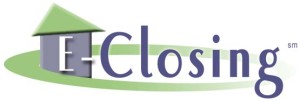E-Closing, the NPI Data Security Solution
 Uncompromising Data Security
Uncompromising Data Security
Data security is at the forefront of conversation these days when it comes to Non‐public Personal Information (NPI). With high profile security breaches at some of our largest online and brick and mortar retailers, there is certainly reason for concern. Adopting and maintaining a written privacy and information security plan is the responsibility of every business, but that doesn’t mean you have to spend a lot of time or money to get it right. With E‐Closing, not only do you get a highly efficient and user‐friendly title processing system, but you can also check off many of those boxes on your data security plan checklist. The security of our users’ data is our top priority and we use a lot of resources to secure and protect it. With E‐Closing, you get the benefit of economies of scale. On your own it may be cost prohibitive to put your servers in a secured data center and so they end up in a backroom or broom closet. With E‐Closing, we put your NPI data where it belongs ‐ behind security checkpoints, hand scanners and even a one‐way security gateway nicknamed “the portal.” Don’t let a locked door be your only line of defense. Use E‐Closing to properly store all of your clients’ NPI. With E‐Closing, you can turn good practices into best practices.
“Adopting and maintaining a written privacy and
information security plan is the responsibility of
every business, but that doesn’t mean you have to
spend a lot of time or money to get it right.”
Core Features
- Physical Security of NPI
Non‐public Personal Information is stored in a high security data center on EClosing owned servers located in the United States, not in your office. - Network Security of NPI
All Non‐public Personal Information is transferred securely using 256 bit High Grade Encryption. - Secure Collaboration
All parties can login securely through a branded portal to review closing documents. - Manage User Access
Access levels to client data can be restricted by individual user. Cloud access can even be limited to IP address or a date and time. - Disaster Management
All client data and documents are backed up to a redundant hot spare array.